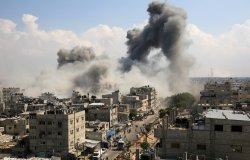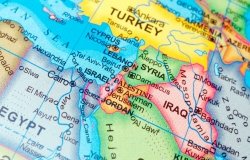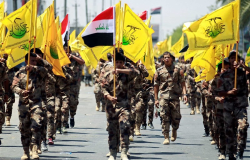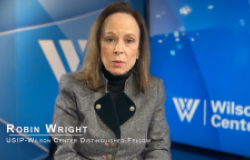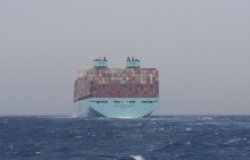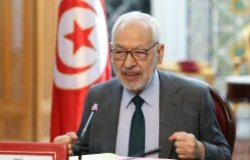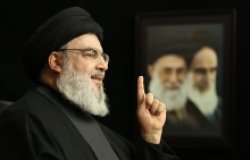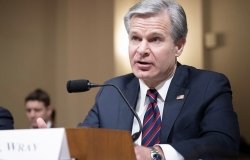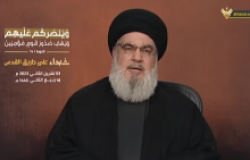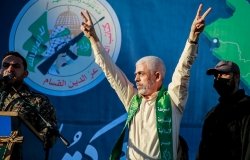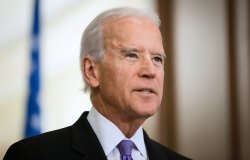Human Rights Watch: 2013 World Report
In early February, Human Wrights watch released its new World Report. The following are excerpts from chapters on Algeria, Egypt, Jordan, Lebanon, Libya, Morocco, Syria, Tunisia, Turkey and Yemen.
In early February, Human Wrights watch released its new World Report. The following are excerpts from chapters on Algeria, Egypt, Jordan, Lebanon, Libya, Morocco, Syria, Tunisia, Turkey and Yemen.
Algeria
New laws adopted in January 2012, and the announcement in 2011 of an end to the 19-year-old state of emergency and of major constitutional and electoral reforms, did little to give Algerians more freedom to associate, form political parties, or express their opinions. Authorities relied on other repressive laws and regulations to stifle dissent and human rights activities, such as the 1991 law governing assembly that requires prior authorization for public demonstrations…
The new Association Law, which parliament adopted on January 12, 2012, contains many new provisions that give sweeping powers to the government to control associations. The new law maintains the existing regime of prior approval for associations and gives authorities wide discretionary powers to refuse to grant legal status to new associations without first seeking a court order.
Click here for the full chapter.
Egypt
The rocky transition from autocratic and military rule continued following the 2011 ouster of President Hosni Mubarak. Egypt held democratic parliamentary and presidential elections, and ended 31 years of rule under emergency laws. However, serious human rights problems remain, including police abuse and impunity; restrictions on freedom of expression, association, and religion; and limits on the rights of women and workers…
Overall, there was an increase in prosecutions under restrictive laws from the Mubarak era that penalize defamation and “spreading false information,” and security services continued to arrest and abuse journalists during protests. Security services assaulted, arrested, and tortured journalists and protesters during protests outside the Ministry of Interior in February and outside the Ministry of Defense in May.
Click here for the full chapter.
Jordan
Jordanian authorities increasingly resorted to force, arrests, and politicized charges to respond to continuing demonstrations for political and economic reform. The fifth prime minister to serve since the protests started in January 2011, Abdullah Ensour, took over in October 2012.King Abdullah II has called for early parliamentary elections in January 2013 under a 2012 electoral law that opposition groups complain favors loyalist candidates…
Jordan criminalizes speech that is critical of the king, government officials and institutions, Islam, as well as speech deemed defamatory to other persons. In 2010, a revision of the penal code increased penalties for some speech offenses and the 2010 Law on Information System Crimes extended these provisions to online expression. In September, amendments to the Press and Publications Law broadened speech restrictions on online publications, also holding website managers responsible for user comments.
Click here for the full chapter.
Lebanon
Reforms in Lebanon were stagnant in 2012 as draft laws to stop torture, improve the treatment of migrant domestic workers, and protect women from domestic violence, remained stalled in parliament. Women face discrimination under personal status laws, and vulnerable groups report being mistreated or tortured by security force members during arrest and in custody. Lebanese authorities and humanitarian organizations have provided material assistance to the influx of Syrians fleeing their country’s fighting, but needs are increasing. Approximately 300,000 Palestinian refugees in Lebanon live in appalling social and economic conditions…
Lebanon has witnessed an influx of Syrians escaping the crisis in their country. Most of the Syrians reside with host families or in ad hoc shelters, often in difficult circumstances, and in public accommodations, such as schools or rented apartments. At this writing, 95,452 Syrian refugees had registered with the UNHCR with an additional 34,275 waiting to be registered. Registration does not grant Syrians legal status, only a right to receive assistance. As a result, they face the risk of detention and deportation. Lebanon deported 14 Syrians back to Syria in August, four of whom said they feared persecution upon return.
Click here for the full chapter.
Libya
After 42 years of dictatorship under Muammar Gaddafi, Libya held elections for a General National Congress (GNC) in July, but a weak interim government failed to disband a myriad of armed groups around the country, end arbitrary detention and torture against detainees, or address the forced displacement of groups perceived to be pro-Gaddafi…
As of October, roughly 8,000 people were in detention. The majority of them were held for more than a year without charge or due process rights, including judicial review and access to a lawyer. The Ministry of Justice holds around 3,000 detainees, around 2,000 are held by the Ministry of Defense or Supreme Security Committee. The rest were being held illegally by various armed groups.
Click here for the full chapter.
Morocco/Western Sahara
Human rights conditions were decidedly mixed in Morocco, as a 2011 constitution containing strong human rights provisions did not translate into improved practices. While Moroccans exercised their right to protest in the streets, the police often dispersed them violently, and protest leaders and dissidents risked imprisonment after unfair trials, sometimes based on the many laws repressing speech that have yet to be revised in light of the new constitution…
Seddik Kebbouri, president of the Bouarfa section of the independent Moroccan Association for Human Rights, served eight months in prison following his conviction in an unfair trial for his alleged role in a May 2011 demonstration that ended in rock-throwing and property damage. A royal pardon freed Kebbouri and nine co-defendants on February 4, 2012. A Casablanca court on September 12 sentenced five protesters to between eight and ten months in prison on charges they assaulted police at a street protest on July 22, even though the court relied on confessions that the defendants claimed had been beaten out of them.
Click here for the full chapter.
Syria
Syria’s uprising turned increasingly bloody in 2012 as the government’s crackdown on anti-government protests developed into an entrenched armed conflict. Government forces and pro-government militia known as shabeeha continue to torture detainees and commit extrajudicial killings in areas under their control. Some opposition forces have also carried out serious abuses like kidnapping, torture, and extrajudicial executions. According to opposition sources, 34,346 civilians had been killed in the conflict at this writing. The spread and intensification of fighting have led to a dire humanitarian situation with hundreds of thousands displaced internally or seeking refuge in neighboring countries.
Click here for the full chapter.
Tunisia
Following the ouster of President Zine el-Abidine Ben Ali in January 2011, Tunisians elected a National Constituent Assembly (NCA) in October 2011 and entrusted its members with drafting a new constitution, to be followed by legislative and presidential elections. The Islamist party Al-Nahdha, which won a plurality of seats in the elections for the NCA, formed a governing coalition with Al-Mu’tamar min ajl al-Jumhuriyya party (Congress for the Republic) and the leftist Ettakatol party (Democratic Forum for Labor and Liberties) to form a ruling coalition. At this writing, the NCA was debating a draft constitution, drafted by a group of six NCA committees, which upholds several key human rights and fundamental freedoms but also contains provisions that undermine women’s rights, as well as freedom of expression and of thought.
Tunisians enjoy a greater degree of freedom of assembly, expression, and association, and the right to form political parties than in the past. However, the consolidation of human rights protections was hampered by the failure to adopt reforms that would lead to a more independent judiciary, attempts by the executive branch to exert control over the media, the prosecution of speech offenses, and the failure of the authorities to investigate and prosecute physical assaults against individuals attributed to fundamentalist groups.
Click here for the full chapter.
Turkey
Turkey’s Justice and Development Party (AKP) government maintained economic growth in 2012 despite a slowdown, and a strong focus on developing a leading regional role, but failed to take convincing steps to address the country’s worsening domestic human rights record and democratic deficit. Prosecutors and courts continued to use terrorism laws to prosecute and prolong incarceration of thousands of Kurdish political activists, human rights defenders, students, journalists, and trade unionists. Free speech and media remained restricted, and there were ongoing serious violations of fair trial rights…
With the AKP condoning the mass incarceration of Kurdish activists, and the outlawed Kurdistan Workers’ Party (PKK) escalating attacks, 2012 saw a spiraling descent into violence with armed clashes resulting in hundreds of deaths of soldiers and PKK members, significantly higher than recent years. Throughout 2012, the PKK kidnapped security personnel and civilians, including local politicians, one parliamentarian, and teachers, releasing them periodically. A suspected PKK attack in Gaziantep in August left nine civilians dead, including four children. The non-resolution of the Kurdish issue remained the single greatest obstacle to progress on human rights in Turkey.
Click here for the full chapter.
Yemen
The fragile transition government that succeeded President Ali Abdullah Saleh in 2012 following mass protests faces multiple challenges in ending human rights violations such as arbitrary detention, attacks on free speech and assembly, and child-soldier deployment. Fighting linked to the political upheaval decreased, but sectarian clashes continued in the north, and government forces fought with the Yemen branch of al Qaeda in the south. The country faces a growing humanitarian crisis, with nearly half the population lacking sufficient food…
Freedom of expression, association and peaceful assembly improved significantly in 2012. However, scores of journalists were attacked or harassed by individuals or armed groups from across the political spectrum.
Click here for the full chapter.
Related Program

The Islamists
Learn more about Hamas and how it relates to similarly aligned organizations throughout the region. Read more
